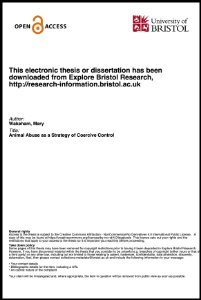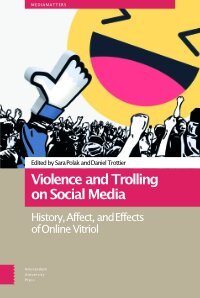By Mary Wakeham.
This study adopts a feminist methodology to explore the coexistence of animal abuse and domestic abuse. This study builds on the growing body of research in this area that to date has largely been situated in the US, Canada and Australia to provide new knowledge. There were three phases of data collection in this research which included a national online survey, semi-structured interviews with victim-survivors of domestic violence and abuse and interviews with professionals.
The research findings provide compelling evidence that animal abuse is a strategy of coercive control and an act of animal cruelty. The oppression of women, children and animals are intertwined in patriarchal systems, and nowhere is this interconnection more apparent than in the co-occurrence of animal abuse and domestic violence and abuse. A human-centric approach dominates definitions and the prevailing public story about domestic violence and abuse across society. This conceptualisation focuses on the human victim-survivor in isolation but undermines the status of the animal and the importance of the animal in the dynamics of abuse. We need to extend our construction of domestic violence and abuse to include animals as victim-survivors. Animals are the silent victim- survivors of domestic violence and abuse.
The oppression of animals is compounded by the dominant status of animals in society as ‘less important’ than human beings and ‘property’ that is ‘owned’ by humans. This conceptualisation of animals is underpinned by animal welfare legislation in the UK that provides a platform for perpetrators of domestic abuse who abuse animals to justify and continue the abuse of animals often with little consequence or challenge. This research highlights the many parallels between the abuse of animals and people in the context of domestic abuse and the implications of the abuse for all victim-survivors – humans and animals.
Bristol, UK: University of Bristol, 2021. 261p.









